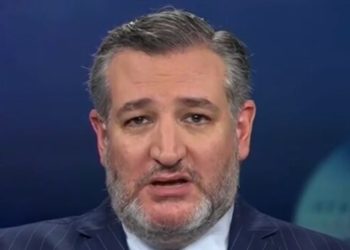This spring, months before the recent dramatic departures from the CDC, Robert F. Kennedy Jr. battled with the agency’s scientists during the very first public-health crisis of his tenure as health secretary. As measles tore through a remote community in West Texas, Kennedy waffled on the vaccine and promoted alternative remedies, such as vitamin A. So the CDC pushed back. Demetre Daskalakis, who resigned last week as the CDC’s director of the National Center for Immunization and Respiratory Diseases, told me that the agency deliberately rebutted Kennedy by publishing a fact sheet, noting that vitamin A had been found to be effective against measles in countries that, unlike the United States, have high rates of vitamin-A deficiency. “We had to put up that PDF to subtly counter it, because providers were like, What the hell is actually happening?” Daskalakis said.
Since then, it’s become clear that Kennedy has prevailed. In June, he fired all the members of the CDC’s vaccine-advisory committee and replaced them with a cast that includes contrarians, anti-vaccine activists, and conspiracy theorists. Last week, Kennedy pushed out the CDC’s director after less than a month on the job, and three senior leaders, including the chief medical officer, resigned in protest. Today, reports emerged that Kennedy wishes to pull the Pfizer and Moderna COVID vaccines from the U.S. market, and that he plans to install more fringe figures on the vaccine committee ahead of its meeting on September 18. (HHS and the White House have maintained that Kennedy is basing policy on sound science. HHS did not respond to my request for comment.)
Kennedy appears to be taking a victory lap. In an op-ed published yesterday in The Wall Street Journal, the health secretary excoriated the CDC he took over as dysfunctional and politicized. Now, he argues, thanks to his leadership, the CDC is on the right track. As evidence, he cited its response to the measles outbreak, which claimed the lives of two unvaccinated girls who were members of the same Mennonite church. “When measles flared this year in Texas, we brought vaccines, therapeutics and resources to the epicenter. The outbreak ended quickly, proving the CDC can act swiftly with precision when guided by science and freed from ideology,” Kennedy wrote. “That response was neither ‘pro-vax’ nor ‘antivax.’ It wasn’t distracted by ‘equity outcomes’ or politically correct language like ‘pregnant people.’ It was effective.”
Much of that is misleading. Far from ending quickly, the outbreak in West Texas lasted from January to August and fed a measles surge that spread to 41 states—the country’s worst since 1992. The CDC documented 1,431 cases nationwide, though health officials say many of those who contracted measles were never tested and therefore weren’t counted. More than 100 children and teenagers were hospitalized. As for the swift response, although the CDC did send researchers to the area in early March after the first death, a recent story published by KFF Health News documents early confusion and silence from the federal government. On February 5, the public-health director in Lubbock, Texas, wrote in an email, “My staff feels like we are out here all alone.”
Yesterday’s op-ed isn’t the first time Kennedy has downplayed the outbreak’s severity. During a White House Cabinet meeting in February, Kennedy said that what was happening in West Texas was “not unusual,” even though a 6-year-old girl, Kayley Fehr, had already died, the first such death in the United States in a decade. He also claimed that those who were hospitalized were there “mainly for quarantine.” In fact, a hospital official later said, no one had been quarantined; children were being hospitalized because they were seriously ill.
Kennedy also undermined the CDC’s vaccination efforts by offering mixed messages about the measles vaccine and promoting unproven alternative treatments. After casting the decision to vaccinate as a “personal one” in March, he seemed to modify his stance, noting accurately that “the most effective way to prevent the spread of measles is the MMR vaccine.” But as I reported in April, when Kennedy went to Seminole for the funeral of a second girl, 8-year-old Daisy Hildebrand, he said at a gathering after her service “You don’t know what’s in the vaccine anymore,” according to her father. (HHS would not confirm this at the time.) Kennedy also referred to two doctors in West Texas who he said favored unproven measles treatments, such as cod-liver oil and an inhaled steroid, as “extraordinary healers.” In his Wall Street Journal op-ed, Kennedy wrote that the CDC sent “therapeutics”—evidently his term for treatments like vitamin A, steroids, and antibiotics—to Seminole to combat the virus. But as my colleague Nicholas Florko wrote back in March, none of those treatments was requested by health-care providers in Texas—or delivered by the CDC. Yesterday a spokesperson for the state’s health department confirmed to me that the CDC sent only vaccines. In late March, Covenant Children’s Hospital in nearby Lubbock reported treating a small number of unvaccinated children with measles who were also suffering from vitamin A toxicity.
I visited Seminole during the outbreak and spoke with the families of the two children who died, along with others in their close-knit Mennonite community. I saw how public-health officials struggled to persuade a community suspicious of the vaccine to line up for shots. Many residents of Seminole echoed Kennedy’s anti-vaccine message, even as their children fell ill or awaited burial. Now fewer scientists in senior positions are left at the CDC to issue fact sheets, encourage visits to disease-stricken communities, and otherwise curb Kennedy’s worst anti-vaccine impulses.
The post RFK Jr.’s Victory Lap appeared first on The Atlantic.




